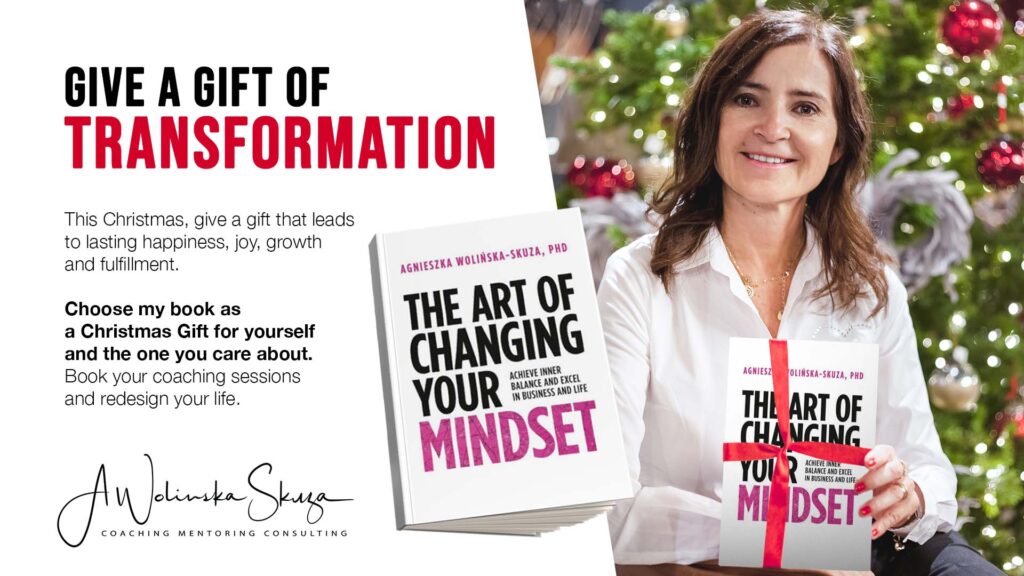Do you prefer to be comfortable rather than change something and search for the next opportunity?
Everything you want that you don’t have is waiting for you just outside your comfort zone. In order to change something you need to change your mindset, the way you think and behave.
Your comfort zone is defined as a comfortable, safe way of existing and working, usually in a set routine with low levels of anxiety and stress. It is a situation or a state of mind when we do not experience anything new or different and our abilities are not stretched for some time.
Once we are in our comfort zone, it could be hard to leave it as fear of change can keep us frozen. As long as we do not build a compelling reason to do so, it will be difficult to escape that zone of comfort. However getting out of your comfort zone from time to time creates an opportunity to increase your focus, creativity and drive, and it helps you respond to life stress when unexpected things happen. A psychologist Robert Yerkes based on his research confirmed that in order to increase performance, you must reach a level of stress slightly higher than normal. He called this an optimal anxiety that exists just outside of our comfort zone.
Change often brings fear and uncertainty. What are you feeling when you are in your comfort zone? Are you safe? Secure? Probably yes, but are you also bored, inflexible, stagnant? What if your “comfort zone” was also your “failure zone” because nothing has changed or you haven’t tried anything new? If you reframe “comfort” to mean growth, learning, or purpose you may see what will change. Take the time to think about what it could be like to take that step. Visualise the idea or thought long enough to build solid momentum that inspires you to take action.
In order to get from your comfort zone to a growth zone you have to go through on a journey and go through the fear zone and learning zone first. It takes courage to step from the comfort zone into the fear zone. Very often you can feel the lack of self-confidence and find excuses not to do something new or you can be affected by the opinions of others. But once you overcome it and you enter the learning zone you can gain new skills and deal with challenges and problems and in this way extend your comfort zone. After a learning period, a new comfort zone is created which is called the growth zone. The growth zone helps you expand your ability, realize you aspirations, find purpose, set new goals and live dreams.
The process of moving from the comfort zone to a growth zone is usually not linear and hard without a roadmap and some level of self-awareness. You can experience on your way peaks and doubts and frustrations and sometimes, you even need to retreat back to the comfort zone periodically before gaining the strength to leave again.
To leave your comfort zone, you must understand its outer limits and where your panic zone lies. Taking on challenges that lie somewhere in between can stretch you, leading to growth and learning. Understanding and capitalizing on your personal strengths can be of great use. For some people leaving the comfort zone in at least one area of life can bring lots of positive benefits in other areas (see my 12 areas of Inner Balance Inventory).
So what are the benefits of leaving the comfort zone?
- Overcoming Fear
You may start by identifying the fear that makes something uncomfortable, and then go through a quick mental exercise to rationalize why you shouldn’t proceed with this uncomfortable idea. Is it purely emotional or it is a resistance to change? Perhaps you need to proceed and push through any discomfort.It’s natural for our minds to resist change. Thinking about taking the little step activates your brain to take an action. Take a goal and break it down into small steps. Focus on one step at a time. This approach will boost your confidence, associate a positive outcome with your goal and motivate you to stick with pursuing it to ultimately achieve the result you desire.You may ask yourself what’s the worst that could happen? And then, what’s the best case scenario? Fear keeps us frozen.Both of those questions should help you address any fear or discomfort, then channel energy towards the success of trying or exploring something new. Focus on these positive things, and it will be easier to move out of your comfort zone.
- Taking Risks and Increasing Confidence
Implementing something new that makes us uncomfortable can help us build our inner strength and ability to take risks. Even if we fail, we can still learn something new, and have an experience that we can build on in the future to allow us to lead a more meaningful life.
In order to develop confidence, we need to face our fears and take a risk. We might be surprised that we are very often able to do things that we were not even sure we could do before. The world is changing rapidly, and those who fear change risk getting left behind. The more goals we set and achieve, the further our confidence will rise.
- Enhancing Creativity and Boosting Performance
Every job requires problem solving, especially when you develop new products, search for better strategies, prepare for negotiation, create new business models, and many others. Some difficult, uncomfortable tasks force us to think differently and require breaking down our barriers and our individual limitations. Stepping out of your comfort zone is a great way to boost creativity and it doesn’t necessarily need to be done in front of other people either. You just need to train your brain to think in a variety of different ways and constantly figure out new perspectives. Experiment with new things and take a risk to initiate new approaches to your everyday tasks. By trying something new you will awaken your imagination.
- Developing a Growth Mindset
According to Carol Dweck, Stanford psychologist, the growth mindset means recognizing humans as adaptable. From this viewpoint, setbacks become opportunities for learning and our potential becomes unlimited.
Intentionally leaving our comfort zone goes together with developing a growth mindset. While the fixed mindset keeps us trapped by fear of failure, the growth mindset expands the possible. It inspires us to learn and take healthy risks, leading to positive outcomes across different areas of life.
- Building Belief in Success
Leaving the comfort zone means a phase of trial and error, during which some level of success is always possible. We tend to be very good at remembering what went wrong but not as great at remembering what we did well. Keep track of your successes and always refer back to them as tangible examples of your capabilities, bravery, and accomplishments.
Experiencing this success builds our self-awareness, with belief in our ability starting to grow.
- Developing Self- fulfilment
For many people, self-fulfilment or according to Maslow’s theory of human motivation, self-actualization can act as an important encouragement to leave the comfort zone. According to this theory (the hierarchy of needs), which operates like a ladder, the satisfaction of our basic and psychological needs is analogous to occupying the comfort zone and the higher requirements are an equivalent to personal growth and fulfilment. This is very important for our self-satisfaction and for expanding our creativity.
- Learning Resilience and Antifragility
The habit of expanding your comfort zone can equip you to handle change and ambiguity with more poise, leading to resilience. Resilience is the ability to withstand adversity and bounce back from difficult life events. Flexibility, adaptability, and perseverance can help us tap into our resilience by changing certain thoughts and behaviours. Developing resilience is both complex and personal. It involves a combination of inner strengths and outer resources, and there isn’t a universal formula for becoming more resilient.
Nassim Taleb, a mathematical statistician introduced in his book “Antifragile” a new concept of antifragility, which is an „increase in capability to thrive as a result of stressors, shocks, volatility, noise, mistakes, faults, attacks, or failures“. Examples include evolution and immune systems, as well as the human psyche. While resilient systems bounce back to the same level after a shock, antifragile systems learn to grow from them, reaching new heights.
The more time we stay inside of our comfort zones, the scarier new territory will appear to us. For people who are already pushing their comfort zones, change will not appear as frightening. Instead, they’ll welcome a new project at work or learning a new language as a challenge that can open up possibilities for growth that were not there before.
It’s worth remembering that getting out of your comfort zone doesn’t have to be a radical move. During my coaching session I am pushing my clients beyond their comfort boundariesto take on bigger risks and not regret in the future that they didn’t have enough courage to try something that they always wanted to do. We build various scenarios of what might have been if they had tried to do things beyond what they initially felt they could manage.
I ask then if there is anything new they have always wanted to try, a place they have always wanted to visit, or start a new project, a new challenge. I also ask them what they will feel after some years if they did not do anything about it. Will they regret it? So I challenge themto speak up in a meeting that they normally find intimidating. I encourage them to do the things that they are scared of or push them to learn new skills or try to upgrade the skills they have. This raises their confidence and boost their performance, and help them to gain new perspectives and widen their horizons.


